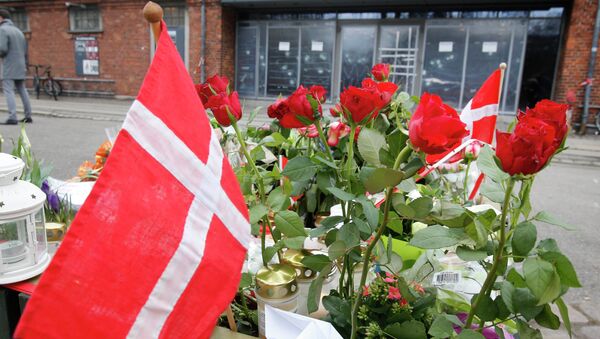Denmark’s Security and Intelligence Service (PET) released a statement confirming that the country’s prison and probation service flagged the 22-year-old suspect as being at "risk of radicalisation" in September, while he was serving time in prison for a stabbing.
However PET officials said they had no evidence to suggest that the suspect was planning to carry out attacks.
"PET had, against the background of the alert from the Prison and Probation Service no reason to believe that the now deceased 22-year-old offender was planning attacks."
The suspected gunman, identified in the local media as Omar El-Hussein, a Danish-born man of Palestinian heritage, was killed during a shootout with police on Sunday.
He is suspected of shooting dead two people in separate attacks on a free speech event and at a Jewish synagogue, before injuring five police officers during a shootout early on Sunday morning.
Officials say the man was known to police, while it’s also thought that he was recently released from prison.
Danish politicians are now calling for an investigation into whether more could have been done by police and intelligence services to track the suspect and potentially prevent the shootings.
"I assume the government will review this information. Have mistakes been made on the part of the police or PET? That has to be made clear," Venstre opposition party spokesman, Karsten Lauritzen, told the Berlingske newspaper.
Anti-radicalisation initiative passed in Denmark: Denmark will spend nearly 60 million kroner on a new anti-ra… http://t.co/HlksbeGLSi
— NDBnewswire (@ISCOSEU) February 8, 2015
The latest attack has raised further questions about radicalisation and extremism in society, while the attacks on the Jewish synagogue has also raised concerns about a perceived rise in anti-Semitism across Europe, following the fatal shooting of customers at a Jewish kosher shop in Paris last month.




